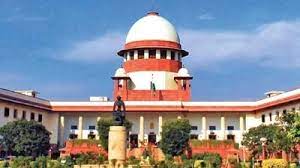NEW DELHI: Twenty-six years after a five-judge Constitution Bench ruled that lawmakers were immune to prosecution for taking bribes to vote or to make speeches in the House, a seven-judge Constitution Bench on Monday overruled the controversial verdict.
A seven-judge Constitution Bench led by CJI DY Chandrachud unanimously overruled the majority verdict in the 1998 PV Narasimha Roa case, saying bribery eroded probity in public life.
After analysing majority and minority decision of the PV Narsimha Rao judgment, the seven-judge Constitution Bench said, “We disagree and overrule the judgment that parliamentarians can claim immunity… The judgment of the majority in the Narsimha Rao which grants immunity to legislators has a grave danger and thus overruled.”
“The offence of bribery is agnostic and it does not matter whether vote is cast in certain direction or is not cast at all… bribery is complete when bribery is accepted interpretation in Narsimha Rao is contrary to Articles 105(2) and 194 of the Indian Constitution,” the CJI said, pronouncing the verdict.
“Bribery is not rendered immune under Article 105 (2) or 194 of the Constitution,” it said, adding that “Article 105 (as also Article 194) seeks to sustain an environment to have deliberations and this atmosphere is vitiated when a member is bribed to deliver a speech.”
The top court said, “Privilege claimed must have a nexus to the collective functioning of the house and must have a relationship with the essential functions of the legislator which they have to discharge. We hold that bribery is not protected by parliamentary privilege.”
“Corruption and bribery of members of the legislature erode the foundation of Indian parliamentary democracy. It’s disruptive of the aspirations and deliberative ideals of the Constitution and creates a polity which deprives citizens of a responsible, responsive, and representative democracy,” said the Bench, which also included Justice AS Bopanna, Justice MM Sundresh, Justice PS Narasimha, Justice JB Pardiwala, Justice Sanjay Kumar and Justice Manoj Misra.
The top court said, “The offence of bribery as per the Prevention of Corruption Act is complete the moment the illegal gratification is taken and it is immaterial whether the legislator votes or gives a speech later in the House in terms of the bribe.”
A five-judge Bench led by the CJI had on September 20, 2023, referred the issue to a seven-judge Constitution Bench to reconsider the correctness of the 1998 judgment.
Earlier, the important question of law relating to Parliamentary privilege under Article 105 and Article 194 of the Constitution was referred to a five-judge constitution Bench by a three-judge Bench headed by the then CJI Ranjan Gogoi on March 7, 2019, in connection with JMM legislator Sita Soren’s plea claiming protection under the top court’s ruling in Narasimha Rao’s case after being accused of taking a bribe during a Rajya Sabha election.
Sita Soren would be liable to be prosecuted for taking bribe to vote for a candidate in Rajya Sabha elections in 2014, said the seven-judge Constitution Bench which had reserved its verdict on October 5, 2023.
Article 105(2) says no member of Parliament shall be liable to any proceedings in a court in respect of anything said or any vote given in Parliament or any committee thereof. A similar immunity is given to state legislators under Article 194(2).


